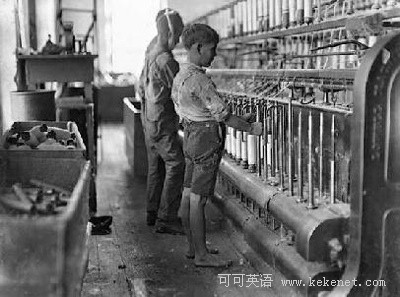4. Industrial Revolution 工業(yè)革命 (1764-1790)

Following James Watt’s improvement of the steam engine in 1764, almost every year in the late 18th century brought a new revolution. The science of chemistry was founded by Lavoisier; Hutton introduced the principles of geology; Adam Smith’s The Wealth of Nations founded economics; Mozart developed the forms of classical music; Burke and Hamilton/Madison defined British-American political theory; Blackstone’s Commentaries did the same for law; photosynthesis was discovered. Technical advances included electrolysis, the ship’s chronometer, chemical processing, tool-making machines, and the water frame.
在詹姆斯 瓦特于1764年蒸汽機(jī)發(fā)明之后,18世紀(jì)末的每一年幾乎都有新的重大變革。拉瓦錫創(chuàng)立了化學(xué);赫胥黎提出了地理學(xué)的原理;亞當(dāng)斯密的《國(guó)富論》創(chuàng)立了經(jīng)濟(jì)學(xué);莫扎特發(fā)展了古典音樂的形式;柏克和漢密爾頓/麥迪遜定義了英美政治理論;布萊克斯通的《英格蘭法律解釋》發(fā)展了法理學(xué);光合作用被發(fā)現(xiàn)。技術(shù)進(jìn)步包括電解、船上的精密計(jì)時(shí)器、化學(xué)反應(yīng)、機(jī)床和水力紡紗機(jī)等等。


















